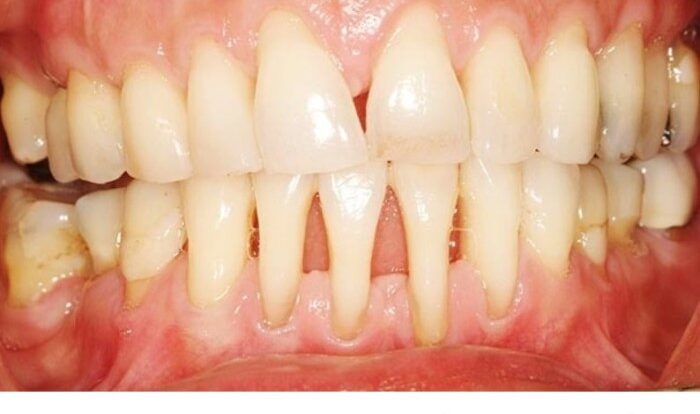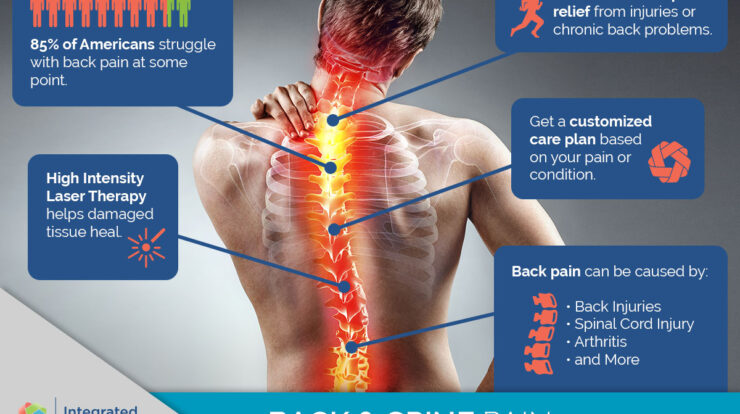
Tired of expensive dental bills and painful gum disease? Discover how to cure gum disease without a dentist in this comprehensive guide. From natural remedies to lifestyle changes, we’ll explore effective ways to restore your oral health and keep your gums healthy.
Let’s dive into the world of gum disease treatment and empower you with the knowledge to achieve a dazzling smile without breaking the bank.
Home Remedies: How To Cure Gum Disease Without A Dentist

Gum disease is a common problem that can lead to serious health issues if left untreated. While it’s important to see a dentist for regular checkups and cleanings, there are also a number of home remedies that can help to treat and prevent gum disease.
Natural ingredients like baking soda, salt, and tea tree oil have antibacterial and anti-inflammatory properties that can help to reduce inflammation and kill bacteria in the mouth. Other remedies, like oil pulling and flossing, can help to remove plaque and bacteria from the teeth and gums.
Natural Ingredients
| Ingredient | How to Use | Expected Outcome |
|---|---|---|
| Baking soda | Mix 1 teaspoon of baking soda with 1/2 cup of water. Swish the solution around your mouth for 30 seconds, then spit it out. Repeat twice a day. | Baking soda helps to neutralize acids in the mouth and reduce inflammation. |
| Salt | Mix 1/2 teaspoon of salt with 1/2 cup of warm water. Swish the solution around your mouth for 30 seconds, then spit it out. Repeat twice a day. | Salt helps to kill bacteria and reduce inflammation. |
| Tea tree oil | Add 2-3 drops of tea tree oil to 1/2 cup of water. Swish the solution around your mouth for 30 seconds, then spit it out. Repeat once a day. | Tea tree oil has antibacterial and anti-inflammatory properties that can help to reduce gum disease. |
Anecdotal Evidence
Many people have reported success using home remedies to treat gum disease. For example, one study found that people who swished with a baking soda solution twice a day for 4 weeks experienced a significant reduction in gum inflammation and bleeding.
Another study found that people who used tea tree oil to treat gum disease experienced a reduction in plaque and bacteria, as well as an improvement in gum health.
Lifestyle Modifications
Gum disease, also known as periodontal disease, is a common condition that affects the gums and supporting structures of the teeth. It is caused by a buildup of plaque and bacteria on the teeth, which can lead to inflammation, bleeding, and eventually tooth loss.
While gum disease is often treated by a dentist, there are a number of lifestyle modifications that can help to improve gum health and prevent the progression of the disease.
One of the most important things you can do for your gum health is to maintain good oral hygiene. This includes brushing your teeth twice a day with a fluoride toothpaste, flossing daily, and using a mouthwash. Brushing your teeth helps to remove plaque and bacteria from the teeth, while flossing helps to remove plaque and bacteria from between the teeth and below the gum line.
Mouthwash can help to kill bacteria and freshen breath.
In addition to good oral hygiene, there are a number of dietary changes you can make to improve your gum health. Eating a healthy diet that is rich in fruits, vegetables, and whole grains can help to strengthen the immune system and reduce inflammation.
Some specific foods that are good for gum health include:
- Fruits and vegetables:Fruits and vegetables are rich in antioxidants, which can help to protect the gums from damage. Some good choices include apples, oranges, berries, broccoli, and spinach.
- Whole grains:Whole grains are a good source of fiber, which can help to clean the teeth and remove plaque. Some good choices include brown rice, quinoa, and oatmeal.
- Lean protein:Lean protein is a good source of amino acids, which are essential for building and repairing tissues. Some good choices include fish, chicken, and beans.
In addition to eating a healthy diet, there are a number of other lifestyle modifications you can make to improve your gum health. These include:
- Quit smoking:Smoking is one of the worst things you can do for your gum health. It damages the gums and makes them more susceptible to infection.
- Reduce stress:Stress can lead to inflammation, which can damage the gums. Find healthy ways to manage stress, such as exercise, yoga, or meditation.
- Get regular dental checkups:Regular dental checkups can help to catch gum disease early and prevent it from progressing.
By following these lifestyle modifications, you can help to improve your gum health and prevent the progression of gum disease.
Alternative Therapies

In addition to home remedies and lifestyle modifications, alternative therapies may offer potential benefits in managing gum disease. These therapies include acupuncture, herbal remedies, and essential oils.
Acupuncture involves the insertion of thin needles into specific points on the body to stimulate healing and reduce inflammation. Some studies suggest that acupuncture may help improve blood flow to the gums and reduce pain associated with gum disease.
Herbal remedies have been used for centuries to treat various health conditions, including gum disease. Certain herbs, such as green tea, chamomile, and myrrh, have antibacterial and anti-inflammatory properties that may benefit gum health.
Essential oils are concentrated plant extracts that can be used topically or diffused in the air. Some essential oils, such as tea tree oil, clove oil, and peppermint oil, have antimicrobial and antioxidant properties that may help reduce gum inflammation and bacteria.
Gum disease is a common problem that can lead to serious health issues if left untreated. While seeing a dentist is the best way to treat gum disease, there are some things you can do at home to help improve your oral health.
One option is to try Mecconline , a natural supplement that has been shown to be effective in reducing gum inflammation and bleeding. Mecconline is made from a blend of herbs and vitamins that work together to support gum health.
If you are looking for a natural way to improve your gum health, Mecconline is a good option to consider.
Comparison of Alternative Therapies
The following table compares different alternative therapies for gum disease, along with their potential benefits and risks:
| Therapy | Potential Benefits | Risks |
|---|---|---|
| Acupuncture | Improved blood flow to gums, reduced pain | Bruising, bleeding, infection (rare) |
| Green tea extract | Antibacterial, anti-inflammatory properties | Possible stomach upset, insomnia |
| Myrrh | Antibacterial, antifungal, anti-inflammatory properties | Possible allergic reactions, skin irritation |
| Tea tree oil | Antimicrobial, anti-inflammatory properties | Skin irritation, allergic reactions (rare) |
| Clove oil | Antimicrobial, antioxidant properties | Skin irritation, allergic reactions (rare) |
| Peppermint oil | Antimicrobial, anti-inflammatory properties | Skin irritation, allergic reactions (rare) |
Case Studies and Research Findings
Several case studies and research findings have shown the potential effectiveness of alternative therapies in managing gum disease:
- A study published in the Journal of Alternative and Complementary Medicine found that acupuncture significantly reduced gum bleeding and inflammation in patients with chronic periodontitis.
- A review of studies published in the journal Phytotherapy Research concluded that green tea extract may be effective in reducing plaque and gingivitis.
- A study published in the journal Complementary Therapies in Medicine found that tea tree oil mouthwash was effective in reducing gum inflammation and bacteria.
Prevention and Management
Gum disease is largely preventable. By following good oral hygiene practices and making healthy lifestyle choices, you can significantly reduce your risk of developing this condition. Here’s a comprehensive guide to help you prevent and manage gum disease effectively.
The key to preventing gum disease lies in maintaining good oral hygiene. This includes brushing your teeth twice a day with a fluoride toothpaste, flossing once a day, and cleaning your tongue regularly. Proper brushing technique is essential. Hold the toothbrush at a 45-degree angle to your gum line and gently brush in circular motions.
Flossing helps remove plaque and food particles from between your teeth, where your toothbrush can’t reach. Tongue cleaning removes bacteria that can cause bad breath and contribute to gum disease.
Lifestyle Modifications, How to cure gum disease without a dentist
- Quit smoking:Smoking is a major risk factor for gum disease. Quitting smoking can significantly improve your oral health and reduce your risk of developing gum disease.
- Eat a healthy diet:A healthy diet rich in fruits, vegetables, and whole grains can help keep your gums healthy. Avoid sugary foods and drinks, as they can contribute to plaque formation.
- Manage stress:Stress can weaken your immune system, making you more susceptible to gum disease. Find healthy ways to manage stress, such as exercise, yoga, or meditation.
Oral Hygiene Timeline
Gum disease progresses through several stages. Here’s a timeline illustrating the stages and recommended actions at each stage:
| Stage | Symptoms | Recommended Actions |
|---|---|---|
| Gingivitis | Red, swollen, and bleeding gums | Improve oral hygiene, see a dentist for professional cleaning |
| Periodontitis | Gums recede, pockets form between teeth and gums | Scaling and root planing, antibiotics, surgery in severe cases |
| Advanced Periodontitis | Teeth become loose, bone loss occurs | Surgery, tooth extraction in severe cases |
Emergency Measures
If you’re experiencing severe gum pain or swelling, there are some home remedies you can try to relieve the discomfort until you can see a dentist.
Over-the-Counter Medications
Several over-the-counter medications can help reduce pain and inflammation associated with gum disease. Here’s a table summarizing some common options:
| Medication | Dosage | Potential Side Effects |
|---|---|---|
| Ibuprofen | 200-400 mg every 4-6 hours | Stomach upset, nausea, dizziness |
| Acetaminophen | 500-1,000 mg every 4-6 hours | Liver damage (with excessive use) |
| Aspirin | 325-650 mg every 4-6 hours | Stomach bleeding, ulcers |
When to Seek Immediate Medical Attention
In some cases, gum-related emergencies require immediate medical attention. Seek help if you experience:
- Severe pain that doesn’t respond to over-the-counter pain relievers
- Swelling that spreads to your face or neck
- Difficulty breathing or swallowing
- Fever
- Pus or discharge from the gums
Summary

By embracing the strategies Artikeld in this guide, you can effectively combat gum disease without relying on costly dental procedures. Remember, prevention is key, so maintain good oral hygiene habits and incorporate natural remedies into your routine to keep your gums healthy and strong.
So, spread the word, share this knowledge with others, and let’s create a society with healthy gums and bright smiles!
FAQs
Can I completely cure gum disease without a dentist?
While home remedies and lifestyle changes can significantly improve gum health, severe cases may require professional dental intervention.
How long does it take to cure gum disease naturally?
The duration varies depending on the severity of the disease and your body’s response to treatment. However, with consistent home care, you can expect noticeable improvements within a few weeks to months.
Are there any risks associated with home remedies for gum disease?
Some natural remedies may interact with medications or have potential side effects. Always consult a healthcare professional before using any home remedies, especially if you have underlying health conditions.





